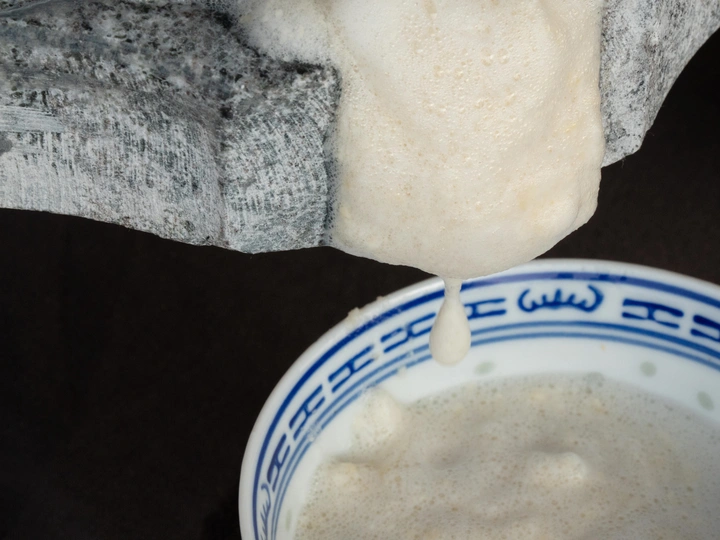Tofutopia

He Shen 何珅 is a spatial practitioner from Sichuan, teaching and researching at the Chair of Architecture and Care (Prof. Anna Puigjaner), ETH Zürich. Their work bridges architecture with queer and decolonial studies, exploring intersections of race, gender and sexuality with space. Shen is currently focused on food narratives, particularly tofu, tea and rice, to unearth and radicalise forms of Asian queer resistance across national and continental borders yet often silenced or overlooked.
Shen makes spatial fragments, moving images, sound, and text to bridge their research work and artistic practice. They are a recipient of the City of Zürich Art Grant (2025), and have presented their work widely, including the Kunsthalle Bern, Kunsthalle Zürich, Aargauer Kunsthaus, Shedhalle, and Helmhaus.
Shen studied at Tsinghua University and ETH Zürich. Their Master thesis investigated the archival absence of LGBTQIA+ spaces in Zürich. With Juan Barcia Mas, they taught the seminar “Art and Architectural Desire” and organised the symposium “Thinking Through Desire: Queer Approaches to Art and Architecture” at Zürich University of the Arts. Shen joined the Chair of Architecture and Care in 2023, contributing to the Master’s thesis program Unfamiliar Ageing and the seminar week Urban Kitchen. They lectured at the Architecture Foundation London, Inner Mongolia University of Technology and EPFL Lausanne.
Their curatorial practice includes Parity Talks X: Where Do We Stand? (2025), Seven Questions (Chair of Jan De Vylder, 2023), Sexkino Roland (Nexpo, 2022), and Cabin Crew (gta exhibitions, 2022). Shen co-initiated Querformat, a student-led queer activist group at ETH Zürich, and co-founded Kitchuan, a food collective exploring intersections of cooking, architecture and collective belonging. As part of the Parity Group (Prix Meret Oppenheim 2023), they co-initiated and co-curated the Fluid Archive, a research platform that empowers institutional activism and grassroot learning.
Tofutopia explores the early 20th-century spatial histories of tofu in Europe, focusing on the factory Caséo-Sojaïne established in Paris by the transnational Chinese anarchism movement. The factory served as a disciplinary space for shaping the scientific, moral, and embodied subject of modern China. The project analyses how the tofu factory resists Western colonial influence in Asia while simultaneously replicating Western industrial and educational spatial models. Shifting to tofu’s discursive afterlives in racialized, gendered, and decontextualized forms, the project critically links popular and policy narratives in which soy becomes feminized, demasculinized, and Orientalized, echoed by a 2025 policy in France in which state health authorities recommended removing soy products from collective dining facilities due to alleged hormonal risks.
The current food system’s separation of production from everyday life is no longer sustainable. Tofutopia investigates the architecture of food manufacture to reveal the colonial power paradigm, where racial and gender dynamics intersect. The tofu factory acts as spatial evidence of decolonisation and modernity experiments, while producing ‘Tofuphobia’ – the residual stigma of tofu that emerges after food production detaches from civic and material context. Building on decolonial and queer theories, Tofutopia aims to re-evaluate the industrialised food chain, and advocates for reclaiming food production spaces as sites of resistance.
To advance this research through the Lina fellowship, the proposal includes 1. archival research on the architecture of the factory/school; 2. a theoretical analysis on industrialised food production in relation to architecture history, and its link to contemporary Asian queer and decolonial struggles in Europe; and 3. disseminating findings and claiming the discursive space through exhibition, talk and tofu workshop designed to engage fellow researchers, local communities, and the public.